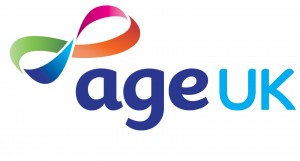 Citizens Advice have carried out a benchmarking study into British Standard for inclusive service provision (BS 18477). Find the full report, titled Treating consumers fairly, here.
Citizens Advice have carried out a benchmarking study into British Standard for inclusive service provision (BS 18477). Find the full report, titled Treating consumers fairly, here.
Benchmark study
To accelerate the rate of uptake of the Standard and support companies’ endeavours to become more inclusive, Citizens Advice (Consumer Futures) commissioned independent research consultancy, Opinium Research LLP to conduct a benchmarking study of three organisations that are directly or closely linked to Citizens Advice and provide free help concerning advice and redress for energy consumers:
- the Citizens Advice consumer service (the consumer service)
- the Ombudsman Service: Energy
- the Extra Help Unit.
All three organisations operate towards the end of a consumer journey – they deal with the consequences of decisions (or indecisions) of other organisations or companies.
Objectives
We believe that all companies’ key aims – particularly those companies providing essential goods and services – should include the provision of fair and flexible services to their consumers. We consider that the time has arrived for a transparent cultural shift whereby organisations:
- reframe their perspective
- change the way they think about consumers and their business
- build ‘long-term relationships’ with consumers; ‘earning their trust and then their business’, to become ‘social leaders’.
A more inclusive approach would benefit all consumers. It could particularly benefit those experiencing vulnerability, as well as improving organisations’ own brand, reputation and employee confidence and satisfaction. In turn, this would benefit society and the wider economy.
Conclusions
A demonstrable organisation-wide commitment to providing services that are fair and accessible to all underpinned all the examples of good practice. The experiences of these organisations suggest that developing a broad, flexible understanding of vulnerability and its impact on the consumer is the critical first step in becoming a fair, inclusive and accessible organisation.
But before an organisation can consider how it should respond to vulnerability, it must first ensure its staff can identify it. For the three participating organisations, training played a crucial role in ensuring that staff:
- can identify or elicit evidence of vulnerability and
- possess the necessary “soft” skills for dealing with consumers in such circumstances.
 More than a million pensioners are still living in poverty, partly due to their failure to claim benefits, the charity Age UK has claimed. In a
More than a million pensioners are still living in poverty, partly due to their failure to claim benefits, the charity Age UK has claimed. In a  Ofgem is reviewing its work on priority services.
Ofgem is reviewing its work on priority services. The Policy Studies Institute have released new research which examines the relationship between pay, employment and poverty. Here is a
The Policy Studies Institute have released new research which examines the relationship between pay, employment and poverty. Here is a  The Consumer Council for Water has published results of their 2013/14 Water Matters tracking research into customers’ views on their water services.
The Consumer Council for Water has published results of their 2013/14 Water Matters tracking research into customers’ views on their water services. BT has commissioned independent research to try to establish the social
BT has commissioned independent research to try to establish the social The Keep me Posted campaign have carried out research with the Centre for Economics and Business Research (CEBR) into the additional costs of being offline, which shows that people who are not online pay £440 more per year. Read more
The Keep me Posted campaign have carried out research with the Centre for Economics and Business Research (CEBR) into the additional costs of being offline, which shows that people who are not online pay £440 more per year. Read more  The FCA said 45,000 customers of the UK’s biggest payday lender would be compensated after it found that letters threatening legal action from non-existent law firms had been sent to customers, in an attempt to boost collections by increasing the pressure on people in debt. In some cases customers had been charged for the letters.
The FCA said 45,000 customers of the UK’s biggest payday lender would be compensated after it found that letters threatening legal action from non-existent law firms had been sent to customers, in an attempt to boost collections by increasing the pressure on people in debt. In some cases customers had been charged for the letters. A
A